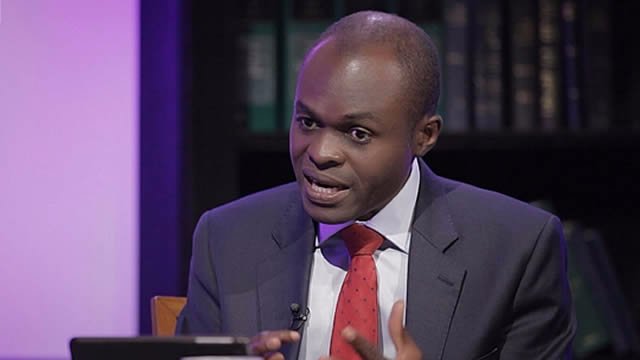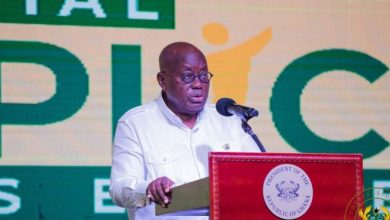News
Public Officers Code of Conduct bill won’t be passed this year- Kpebu

Private legal practitioner Martin Kpebu has cast doubt on President Akufo-Addo’s commitment to ensure the passage of the Code of Conduct for Public Officers bill by the end of 2024.
He said the President seems to be “running away” from the bill.
Chapter 24 of Ghana’s 1992 Constitution focuses on the Code of Conduct for Public Officers. It provides a broad framework for dealing with conflicts of interest, illicit enrichment and other prohibited unethical conduct that can erode public confidence in public offices.
However, several calls from Civil Society Organisations (CSOs) and the Commission on Human Rights and Administrative Justice (CHRAJ) to have the bill passed have yielded no positive results.
The bill presents innovations in the anti-corruption legal framework in the country. It would domesticate the AU Convention on Prevention and Combating Corruption (AUCPCC) and the UN Convention Against Corruption (UNCAC) in the country.
However, Mr. Kpebu maintained that the bill needs to be revised, emphasising a broad stakeholder consultation to factor in the views and concerns of Ghanaians.
“Government must get the buy-in of Ghanaians for the new bill. One of the most critical provisions we want in that new bill is one that will ensure that the assets that are declared will be published. That was our law in Ghana from 1992 to 1998.
“The last time President Akufo-Ado commented about that bill was September last year [2023]…where he promised us a world-class bill. It’s been over six months and we haven’t even seen the bill. So I have a hunch that President Akufo-Addo is running away from the bill,” Mr Kpebu s
He also expressed worry about the IMF’s [International Monetary Fund] failure to ensure Ghana passed the bill before releasing the two tranches of the $3 billion bailout money.
“Before we went to the IMF he [President Akufo-Addo] had said he’s no longer interested in that bill. It was just a good riddance that when we went to the IMF, CSOs impressed upon the IMF and they added it as a conditionality.
“But I’m wondering why the IMF is giving us money without checking on that particular conditionality,” he stated on TV3 News 360 on Tuesday, April 23.
He added, “And looking at the way Parliament works, the cycle, if we are not careful, it doesn’t look like this bill will get passed this year.”
Osafo-Maafo calls for a review of asset declaration law
In a related development, Senior Presidential Advisor Yaw Osafo-Maafo has renewed calls for the review of the existing asset declaration bill, describing it as “opaque” in its current form.
Addressing a forum on open government partnerships and construction sector transparency in Accra, on Tuesday, April 23, he said, “In Ghana, when you become a minister of state, at all levels, asset declaring is the first thing you do, you declare your asset and file same at the Auditor-General.”
“What I personally don’t like about this law is that after you declare the assets everything is kept confidential between the Auditor-General and yourself.
“Therefore, it becomes very difficult for anybody to challenge the authenticity of your declaration.
“I think that yes, let us declare the assets but there should be a certain level of transparency in the declaration of the assets so that people assess what you declare.”
Asset declaration is a multifunctional anti-corruption tool aimed at detecting the acquisition of illegal and unjust enrichment, recovering the same for the state. This builds the broader integrity of public service.
Source:Fiilafmonline/3News



